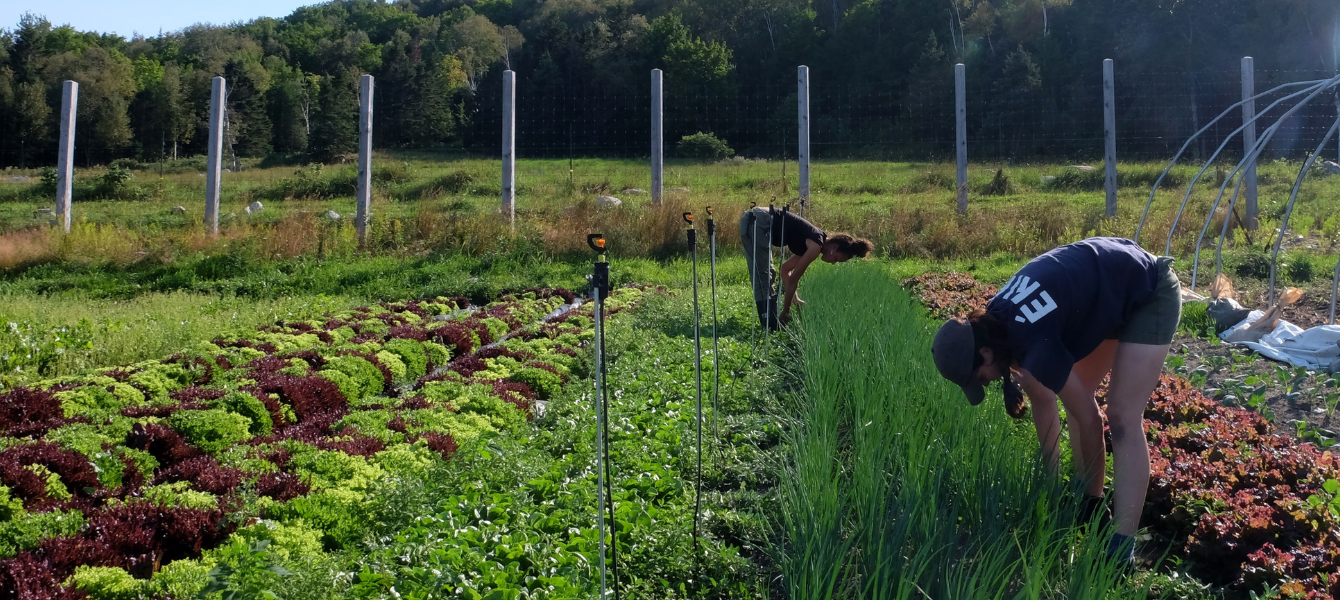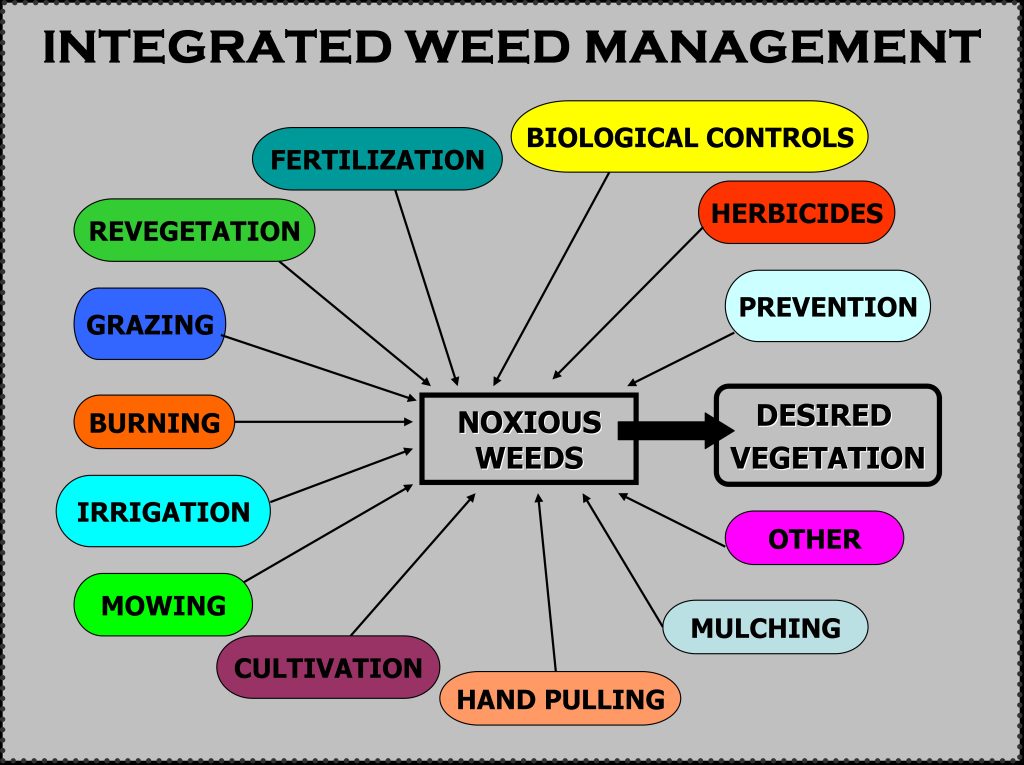Are you tired of battling weeds that seem to pop up overnight in your garden? You’re not alone.
Weeds can feel like an unending nightmare for anyone trying to maintain a beautiful, healthy garden. But what if you could tackle them without resorting to harsh chemicals? Imagine a lush, vibrant garden where the only thing growing is what you planted.
It’s possible with organic weed management techniques that truly work. You’ll discover simple, effective strategies that will not only save you time and effort but also keep your garden thriving naturally. Stay with us to learn how you can transform your gardening experience and finally put those pesky weeds in their place!

Cultural Control Methods
Organic weed management is essential for sustainable agriculture. Cultural control methods offer effective solutions to reduce weeds naturally. These techniques focus on creating conditions that discourage weed growth. They work in harmony with nature and improve soil health. Let’s explore some key cultural control methods.
Crop Rotation
Crop rotation involves changing the type of crop grown in a field each season. It disrupts the life cycle of weeds. Different crops have varied growth patterns and nutrient needs. This makes it harder for weeds to adapt. Rotating crops improves soil fertility and reduces pest issues.
Cover Cropping
Cover cropping uses specific plants to cover soil during off-seasons. These plants suppress weed growth by blocking sunlight. Cover crops also enrich the soil with nutrients. Some popular choices include clover, rye, and vetch. Cover crops prevent soil erosion and maintain moisture.
Mulching Practices
Mulching involves covering soil with organic material. This method blocks sunlight, preventing weeds from growing. Mulch retains soil moisture and regulates temperature. It also adds nutrients as it decomposes. Common mulch materials include straw, wood chips, and leaves.

Mechanical Weed Control
Are you tired of chemical-based solutions for weed control in your garden or farm? Mechanical weed control offers a natural and sustainable alternative, using physical techniques to manage unwanted plants. These methods can be surprisingly effective, and they offer a hands-on approach to keeping your greenery free from invasive species.
Hand Weeding
Hand weeding might seem old-fashioned, but it’s incredibly efficient for small spaces. You get up close and personal with your plants, allowing you to identify and remove weeds accurately. This method gives you the power to tackle weeds before they spread, ensuring your plants have the space and nutrients they need to thrive.
Consider setting aside a few minutes each week for hand weeding. It can be surprisingly therapeutic, providing a quiet moment to connect with nature. Plus, you’ll quickly notice how much healthier your garden looks without those pesky invaders.
Tillage And Cultivation
Tillage and cultivation involve using tools to disrupt the soil and remove weeds. This method is perfect for larger areas where hand weeding is impractical. By breaking up the soil, you can uproot weeds and prevent them from growing back.
Think about the last time you prepared a garden bed. Did you notice how effectively tilling the soil managed weeds? It’s a simple way to give your plants a fighting chance, and it’s often a necessary step in organic farming practices.
Flame Weeding
Flame weeding might sound intense, but it’s an innovative approach to weed control. Using a flame torch, you can target weeds directly, causing them to wilt and die. This method is particularly useful for paths and driveways where weeds can be persistent.
Have you ever tried flame weeding? It’s quite satisfying to watch weeds disappear in seconds. Be cautious, though—make sure to avoid areas with dry mulch or flammable materials.
Mechanical weed control offers effective solutions that can be tailored to your specific needs. Whether it’s the meditative act of hand weeding or the quick results of flame weeding, these techniques put you in control of your garden’s health. What method will you try next to keep your green space thriving?
Biological Control Strategies
Biological control strategies offer sustainable weed management in organic farming. These methods use nature’s balance to keep weeds in check. They reduce reliance on chemical herbicides. Employing natural predators, grazing animals, and allelopathic plants can effectively manage weeds. Each method has unique benefits. Let’s explore these fascinating strategies.
Beneficial Insects
Beneficial insects are nature’s tiny weed warriors. They help manage weed populations by feeding on them. Insects like beetles, caterpillars, and moths are effective. They target specific weeds without harming crops. Introducing these insects creates a balanced ecosystem. It reduces weed growth naturally. Farmers often use ladybugs and lacewings for this purpose. These insects are easy to introduce and maintain. They are a cost-effective solution for weed control.
Grazing Animals
Grazing animals are excellent for organic weed management. Animals like sheep, goats, and cattle graze on weeds. They consume large quantities, reducing weed spread. Grazing keeps the land healthy and fertile. The animals’ movements also aerate the soil. This process helps improve soil quality. Grazing is a natural way to manage weeds without chemicals. It’s also beneficial for animal health and land productivity.
Allelopathic Plants
Allelopathic plants release chemicals that suppress weed growth. They are a natural defense against invasive species. Plants like rye, barley, and sunflowers are allelopathic. They inhibit weed seed germination and growth. Planting these in rotation with crops is effective. It creates a natural weed barrier. Allelopathic plants are safe for the environment. They enhance soil health while controlling weeds.

Natural Herbicides
Organic weed management often turns to natural herbicides. These solutions provide a safer alternative to chemical products. They help maintain a healthy garden ecosystem. Let’s explore some effective natural herbicides.
Vinegar-based Solutions
Vinegar is a popular natural weed killer. Its acetic acid content burns weed leaves. This method works best on young weeds. Spray vinegar directly onto the weeds for best results. Use it on sunny days for better absorption. Avoid spraying on desired plants.
Salt And Soap Mixtures
Salt and soap mixtures offer another natural herbicide option. Salt dehydrates and kills weeds. Soap helps the mixture stick to leaves. Mix salt, water, and dish soap in a spray bottle. Apply directly to the weeds. Be cautious; salt can harm soil health.
Essential Oils
Essential oils have weed-killing properties. Clove and cinnamon oils are particularly effective. They disrupt weed growth and prevent seed germination. Mix a few drops with water. Spray onto weeds to see results. Essential oils add a pleasant scent to your garden.
Conclusion
Effective organic weed management requires commitment and patience. These techniques support healthier, thriving gardens. They minimize chemical use, promoting a safe environment. Mulching is a simple yet powerful method. Cover crops enrich soil and suppress weeds naturally. Hand weeding is labor-intensive but precise.
Vinegar and salt solutions offer non-toxic weed control. Regular garden maintenance prevents weed overgrowth. Embrace these methods for sustainable gardening. Your plants will thank you. A weed-free garden is achievable. Enjoy the beauty of your thriving plants. Celebrate your hard work and dedication.
Organic methods are worth the effort. Keep your garden healthy and vibrant.


